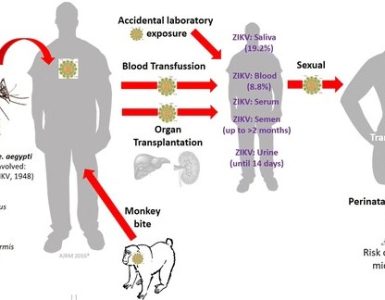
The World Health Assembly spent eight days working through a broad agenda from which 28 resolutions and three decisions were adopted to guide the upcoming work of the Organization and to address priority global health issues.
“I believe this has been an especially productive and profoundly effective Assembly,” says Dr Margaret Chan, Director-General of the World Health Organization. “These World Health Assemblies are having a tremendous impact on the health of this world.”
After opening speeches from Dr Chan, Sheikh Hasina, Prime Minister of Bangladesh, and Bill Gates, co-chair of the Bill & Melinda Gates Foundation, the policy work of the Health Assembly began with a presentation of outcomes from the independent Review Committee which reviewed WHO’s response to the influenza pandemic and the International Health Regulations. After a year of investigation, the committee agreed that the International Health Regulations helped better prepare the world to cope with public health emergencies but that the world is currently ill prepared to respond to a severe pandemic or to any other public health emergency on a similarly global and threatening scale. In addition, the Committee declared that the pandemic (H1N1) 2009 was indeed a real pandemic and found no evidence WHO was influenced by industry in its decision making.
Improving global preparedness for future pandemics
In another agenda item aimed to improve global preparedness for future pandemics, delegates approved a framework for pandemic influenza preparedness, the culmination of four years of negotiation between WHO’s Member States. The framework will improve influenza virus sharing and access to vaccines and other benefits. Member States agreed the framework lays the groundwork for better preparedness and better access to tools and knowledge. The next phase is to ensure the implementation of the agreement.
Resolutions and reports support health-related MDGs
- The progress report on the global immunization vision and strategy was widely supported. Delegates highlighted their country’s achievements in increasing immunization coverage, reducing vaccine-preventable deaths and implementing advocacy events such as the regional immunization weeks. But they also recognized that several challenges remain, including mobilizing more resources to strengthen national immunization programmes; ensuring a balanced approach in strengthening immunization systems; introducing new vaccines; preventing a resurgence of measles through high vaccination coverage; and facilitating vaccine technology transfer to developing countries. The work outlined in the strategy will contribute to overcoming these challenges.
- Member States commend WHO’s leadership and collaboration with UNICEF, the Bill & Melinda Gates Foundation, and other partners on the Decade of Vaccines — a vision for using the next 10 years to achieve immunization goals and reach important milestones in vaccine research, development, financing and public support.
- The Health Assembly adopted a resolution on malaria calling on Member States to keep malaria high on the political and development agendas in order to sustain the tremendous gains made during the past decade, and calling on international partners to ensure adequate and predictable funding so that global malaria targets for 2015 can be met. The resolution highlighted the need for continued universal coverage with malaria vector control for at-risk persons, expanded access to diagnostic testing for suspected malaria and treatment for confirmed cases, and strengthened malaria surveillance systems. The need to implement the WHO Global Plan for Artemisinin Resistance Containment, and to develop a global plan for insecticide resistance management in malaria vectors, were also emphasized.
Reaffirmed that the remaining stock of smallpox virus should be destroyed
The Health Assembly strongly reaffirmed the decision of previous Assemblies that the remaining stock of smallpox (variola) virus should be destroyed when crucial research based on the virus has been completed. The state of variola virus research will be reviewed at the 67th World Health Assembly in 2014 and in light of that, determining a date for destruction of the remaining virus stocks will be discussed.
Strong commitment to polio eradication
The global health community sent a sign of strong commitment to polio eradication with discussion focusing on the ‘significant advances’ since the launch of a new strategic plan and new, bivalent oral poliovirus vaccine in 2010. In India and Nigeria — the source of all importations of wild poliovirus into previously polio-free countries in recent years — polio cases declined by 95% between 2009 and 2010; during the same period polio cases due to the type 3 virus declined by 92% globally. Delegates called for strong national and subnational leadership by political authorities for the implementation of polio eradication strategies and highlighted the need for countries to significantly strengthen routine immunization. Delegates expressed particular concern over the funding gap of US$ 665 million to fully carry out polio eradication activities in 2011 and 2012. Delegates requested WHO to provide additional technical support to countries with ongoing, re-established polio transmission (Angola, Chad, Democratic Republic of the Congo), to continue to pursue research for post-eradication risk management and to help countries maintain high-quality surveillance and population immunity until eradication is complete globally.
Revitalizing the Global Task Force on Cholera Control
Delegates agreed that cholera remains public health threat for many countries and the incidence is on the rise. They expressed the urgent need for effective public health interventions, such as solid surveillance systems, improved environmental management, access to clean water and proper sanitation, and the adequate use of cholera vaccines as a complementary measure. Cholera was recognized as an indicator of how well the environment is managed. Member States underscored the need to revitalize the Global Task Force on Cholera Control and emphasized the need to scale up advocacy measures.
The World Health Assembly is held annually in Geneva, Switzerland and is the decision-making body of the WHO. It is attended by delegations from all WHO Member States and focuses on a specific health agenda prepared by the Executive Board. The main functions of the World Health Assembly are to determine the policies of the Organization, appoint the Director-General in election years, supervise financial policies, and review and approve the proposed programme budget.
Source: WHO

















